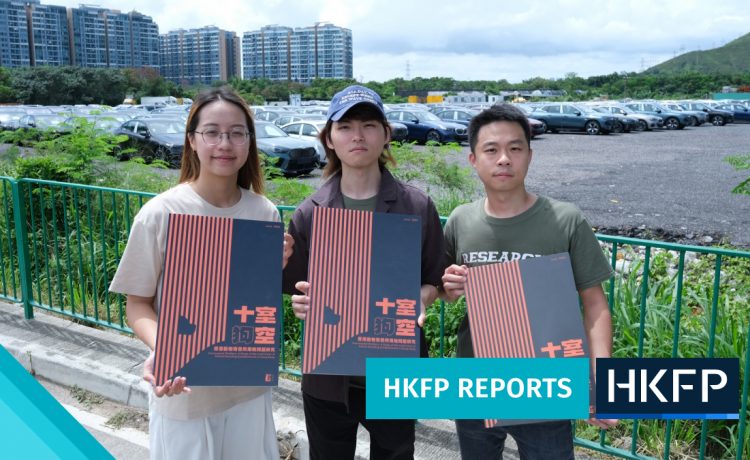Some industrial premises in Hong Kong’s New Territories are suspected of exploiting a loophole in the city’s planning system – and in the process destroying agricultural land – analysis by a land policy think tank has shown.
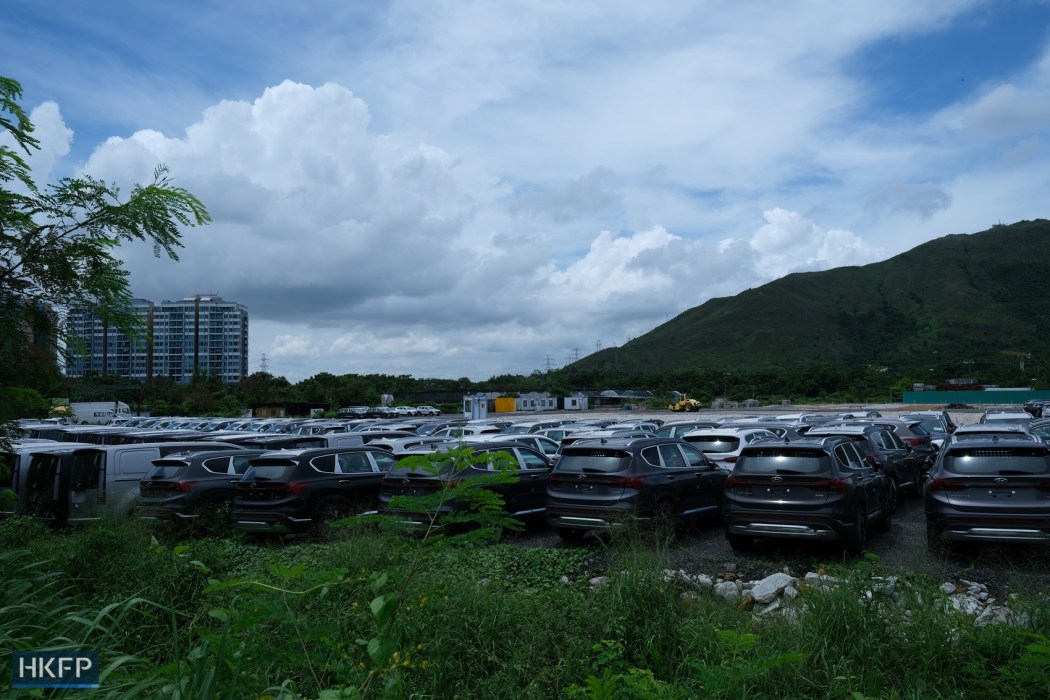
Liber Research Community recently uncovered more than 31 government-approved brownfield operations established on land earlier assigned for animal boarding establishments.
Animal shelters, which effectively allow operators to concrete over agricultural land, have been used as a “springboard” to improve the chances of industrial operations being approved, according to a Liber report. Brownfield operations typically come with a higher threshold for approval due to environmental concerns.
But authorities have brushed aside the allegations, saying that planning applications can be changed as long as they receive approval from the government.
Dog kennels, storage lots
Town Planning Board (TPB) records show that 95 of 106 applications for animal boarding establishments were granted between February 2019 and May 2023, according to Liber’s report. Of those, 60 remained effective, while 35 were later revoked.
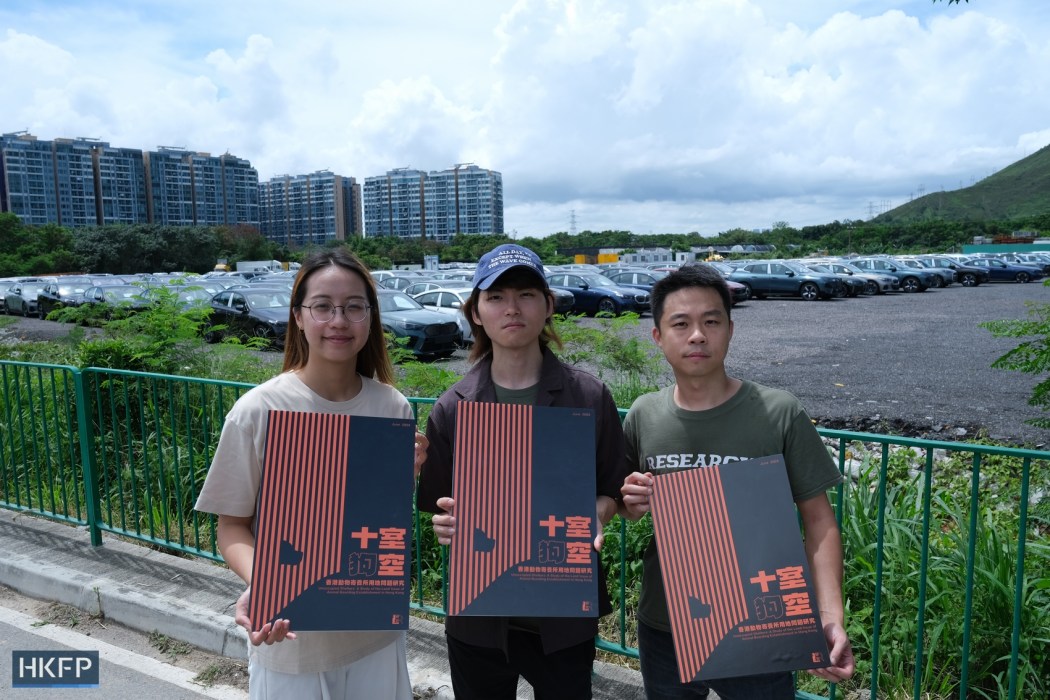
Those figures were also corroborated by site visits conducted by Liber as well as satellite and drone imagery.
Of those 60 sites, only 19 were clearly operating as animal boardings, Liber found, while it could not determine what 10 were engaged in.
The think tank suspected the remaining 31 were not operating as boarding facilities, but as brownfield operations. According to its report, those sites occupied a gross floor area of some 4.2 hectares, primarily in the form of warehouses and storage lots in the New Territories.
One case in Kam Tin North was a car storage lot spanning almost 1 hectare, covered by three separate applications for animal boardings.
In November 2022, three applicants sought permission to set up three boarding facilities on three interconnected plots by Shui Mei Road in Kam Tin North. The applications were approved two months later, and permission was granted to concrete over what was mostly grassland.
Documents received by the TPB show that the applicants had claimed the concrete was needed for the proposed dog kennels to operate.
See also: Flower market redevelopment: Residents fear plans to build high-rises and mall will uproot community
In August 2023, the TPB received applications from a company called Excel Link Development Limited – at which one of the applicants for the Shui Mei Road boarding establishment holds a directorate position – for two “temporary open storage permits” spanning 2.5 hectares. The brownfield applications, which overlapped the three boarding establishment plots, were approved.
HKFP visited the site with Liber last month and confirmed that hundreds of cars of different makes and models were situated at the Kam Tin site. There was no sign of any dog kennels or advertising, on-site or online, that would suggest the existence of a boarding facility.
Initial planning records for the animal boarding facilities at the site state that while their development was “not entirely” congruent with agricultural zoning, filling the land with concrete “would not frustrate the long-term planning intention” of using it for agriculture.
But Liber said the further brownfield operations would have far-reaching effects on the plot.
Regulations relaxed
Of the 31 sites suspected of not living up to their approved status as animal shelters, 15 had seen subsequent applications for brownfield operations such as warehouse and open storage. As of May 31, 12 had been approved by the board.
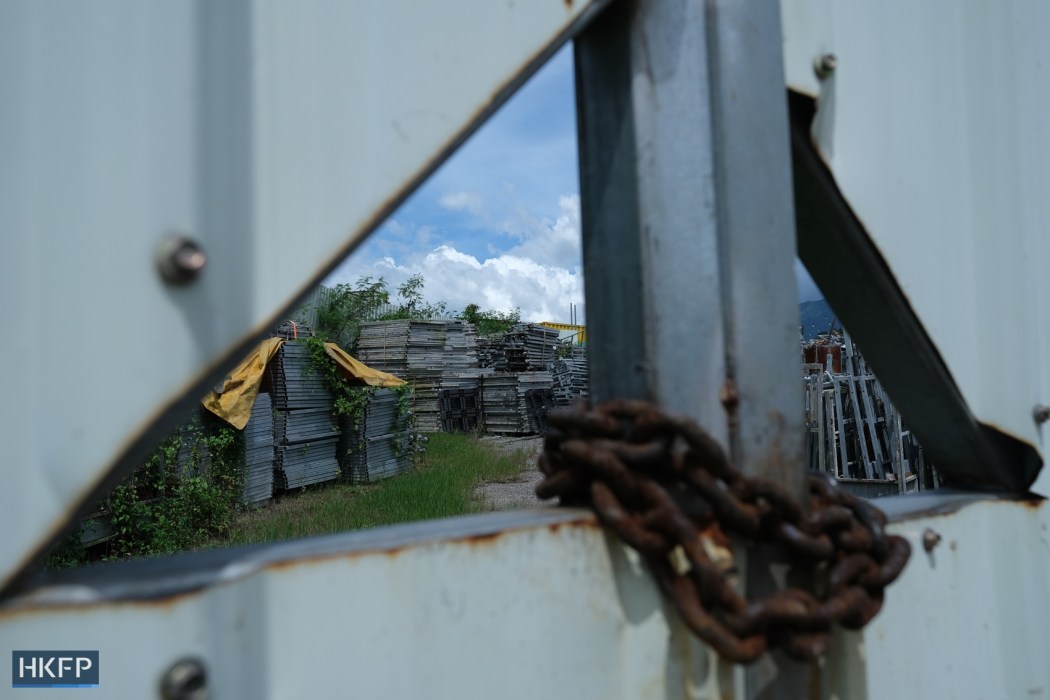
According to Liber, a move by the TPB to reclassify boarding facilities under guidelines revised last year also contributed to the proliferation of brownfield operations.
Records show that months after TPB’s guidelines were revised, open storage applications for a lot in Fung Kat Heung filed by construction firms were approved. The sites were earlier allowed to be transformed into animal shelters.
During a visit to the lot, HKFP saw what appeared to be construction materials behind gates boarded up with corrugated steel plates.
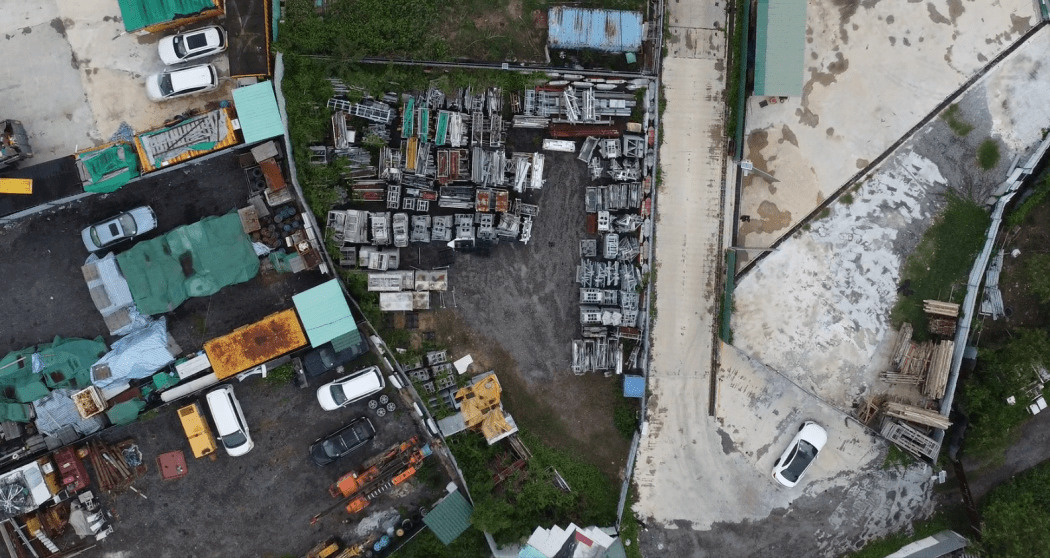
“Not only has the government failed to tackle the issue head on… after the vetting process was simplified, the regulations were relaxed,” Liber’s Brian Wong told reporters last month.
In an emailed reply to HKFP, the Planning Department said that sites could be used for purposes other than their originally approved application as long as they were approved by the TPB.
“Even if a site is approved for use as a temporary ‘Animal Boarding Establishment’, it does not mean that the site can only be used for this purpose, and can also be used for another approved purpose if approved by the TPB,” the department said.
A spokesperson said the department would investigate “relevant venues” to ascertain whether there had been any unauthorised developments.
Streamlined approval
The think tank also suggested that the TPB rescind a streamlining procedure that allowed the board to process applications in bulk to prevent problematic cases from “slipping through the cracks.”
Between last February and late May this year, the TPB vetted 34 applications for animal shelters, of which 32 were approved under the streamlining arrangement, all on agricultural land.

Approval was granted without queries from board members or opposition from other government departments including the Agriculture, Fisheries and Conservation Department, despite its suggestions that the land could be rehabilitated for agricultural use.
One plot in Tai Kong Po, Yuen Long, was granted a boarding establishment and concrete filling application under the streamlining arrangement last March. Construction materials were visible on the site, despite its lack of an application for storage operations, according to Liber’s observations.
The streamlining arrangement would inevitably create a “black hole” in planning procedures, Wong said.
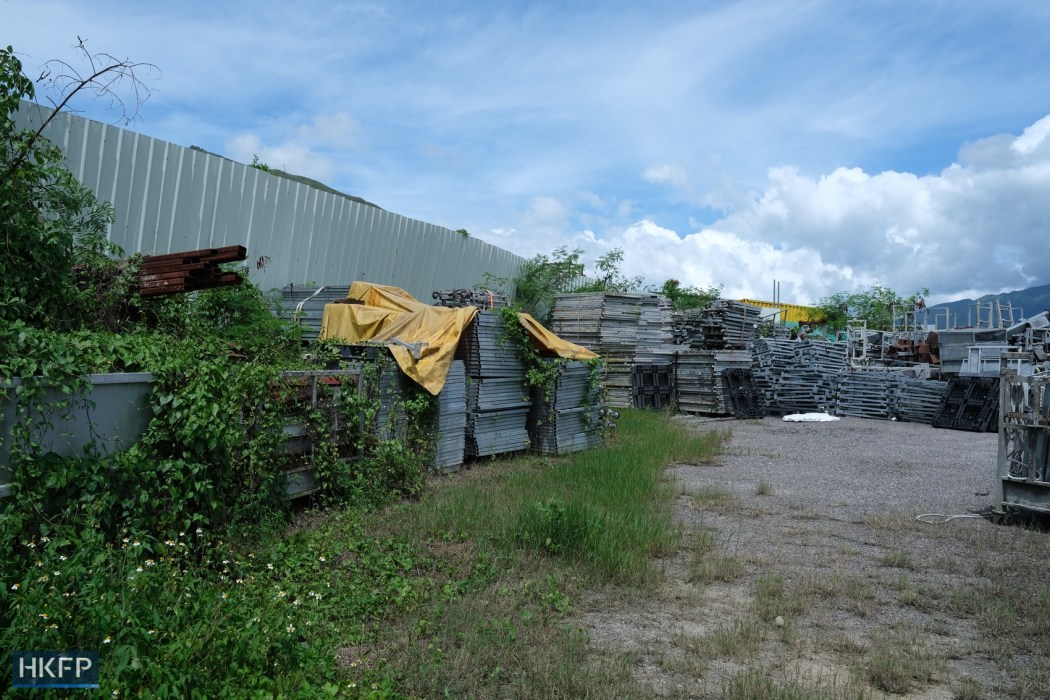
“The Town Planning Board has basically been told they can drop the ball,” Mary Mulvihill, a campaigner on land and planning issues, told reporters last month, noting that loopholes in planning authorities’ regulations had long been an issue.
Before animal boarding establishments, operators would apply for partial concrete filling on hobby farms and campsites before applying for storage permits, the Irish septuagenarian said.
“Here we have the government propagating certain things and then on the other hand, for expediency’s sake, allowing the system to be manipulated,” she said. “Whatever we [the TPB] need to get done, we’ll get it done. It doesn’t matter if we break all the rules and regulations. We will find a way to get around it.”
Support HKFP | Policies & Ethics | Error/typo? | Contact Us | Newsletter | Transparency & Annual Report | Apps
Help safeguard press freedom & keep HKFP free for all readers by supporting our team
Original reporting on HKFP is backed by our monthly contributors.
Almost 1,000 monthly donors make HKFP possible. Each contributes an average of HK$200/month to support our award-winning original reporting, keeping the city’s only independent English-language outlet free-to-access for all. Three reasons to join us:
- 🔎 Transparent & efficient: As a non-profit, we are externally audited each year, publishing our income/outgoings annually, as the city’s most transparent news outlet.
- 🔒 Accurate & accountable: Our reporting is governed by a comprehensive Ethics Code. We are 100% independent, and not answerable to any tycoon, mainland owners or shareholders. Check out our latest Annual Report, and help support press freedom.
- 💰 It’s fast, secure & easy: We accept most payment methods – cancel anytime, and receive a free tote bag and pen if you contribute HK$150/month or more.


